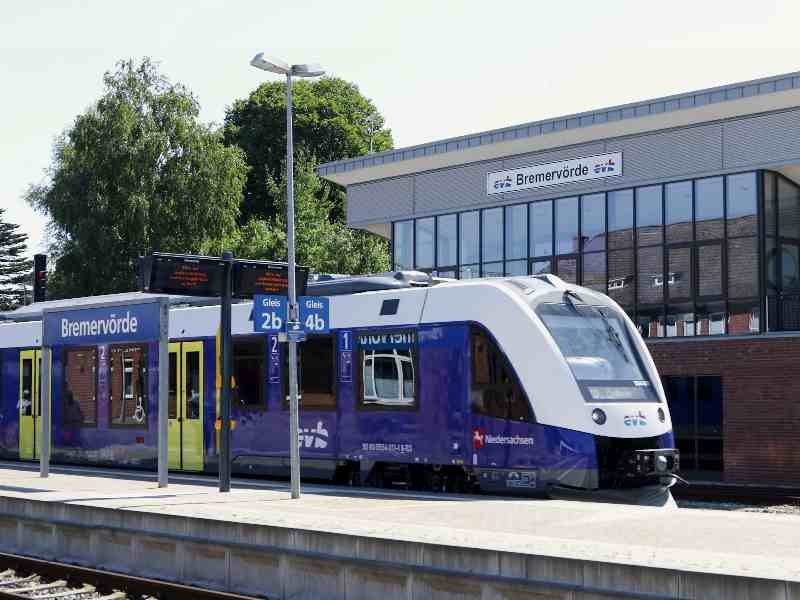
Germany has launched a passenger railway network of Coradia iLint model trains, powered entirely by hydrogen, stated to be a world-first.
The 14 trains belong to the Landesnahverkehrsgesellschaft Niedersachsen (LNVG) mbH, a subsidiary of the state.
The trains are run on the route between Cuxhaven, Bremerhaven, Bremervörde and Buxtehude, operated by Elbe-Weser Transport Company (EVB) on behalf of LNVG, replacing 15 prior diesel trains. Five of the new trains are currently rolling and the rest will be added by the end of 2022.
The units come in as LNVG has been exploring diesel alternatives for trains since 2012 and are the result of a partnership with rail vehicle manufacturer Alstom, transport company Elbe-Weser (evb) and gases and engineering company Linde.
According to LNVG, each of the models are quiet, powered by a hydrogen fuel cell that generates electrical energy for propulsion. The Coradia iLint features clean energy conversion, flexible energy storage in batteries and intelligent management of automotive power and energy.
Developed specifically for use on non-electrified routes, the train travels on the evb network at speeds of 80 to 120km/h, with a top speed of 140km/h.
LNVG has stated that the models are entirely emission-free. One kilogram of hydrogen replaces around 4.5 litres of diesel fuel, translating to 1.6 million annual litres of diesel no longer consumed and 4,400 tons of CO2 no longer generated. Each is supplied at a hydrogen filling station around the clock, with one tank providing a range of 1,000km.